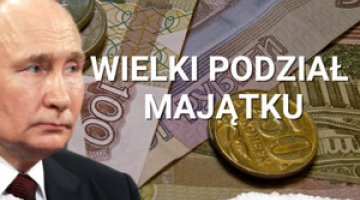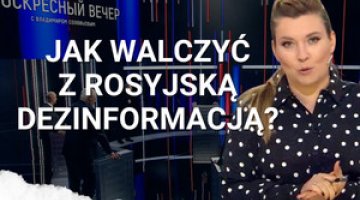Kyiv versus the Orthodox Church of the Moscow Patriarchate
On 22 November, the Security Service of Ukraine (SBU), supported by the police and the National Guard, launched a large-scale counter-espionage operation against the structures of the Ukrainian Orthodox Church of the Moscow Patriarchate (UOC-MP). The intervention was justified by the urge to prevent and limit sabotage by Russian special services. Church facilities in many regions were searched, including the sanctuary of the Kyiv-Pechersk Lavra, the Holy Trinity Monastery in Korets, and the headquarters of the Sarny eparchy (in Rivne Oblast). Over the next few days, the SBU continued its operations in the Chernivtsi-Bukov eparchy, in Ivano-Frankivsk and in the Pochayiv Lavra. 350 church buildings were searched, in which a number of pro-Russian publications, more than US$150,000 in cash, documents confirming the Russian citizenship of some hierarchs, instructions for conducting services ‘in a pro-Russian spirit’, and pro-Kremlin propaganda materials were found. The SBU has opened criminal investigations into various persons for suspected treason or incitement to national hatred.
Commentary
- The Ukrainian government has long been aware that Russia has been using the UOC-MP to support disinformation and intelligence operations: many cases of the direct involvement of its hierarchs in support of Moscow, or even directly in the fighting in the Donbass, were revealed after 2014. However, until February 2022 the authorities’ reactions had been piecemeal, which can be explained by their concern that pro-Russian tensions in Ukraine would be stoked and the faithful would manifest their discontent. But the situation was radically changed by Russia’s aggression, which resulted in the spread of opposition to this church. This allowed the SBU to intensify its actions which, in addition to the counterintelligence dimension, are aimed at highlighting the toxic activity of the ‘Moscow Church’ against Ukrainian statehood. Since 24 February, the SBU has filed charges of collaboration with the occupying power against 33 clergymen, including passing on information useful for targeting Russian missile attacks.
- Kyiv will use various methods to delegitimise or maximally discredit and disintegrate the structures of the Moscow Patriarchate in Ukraine. Back in March, two legislative initiatives calling for the activities of the Ukrainian Patriarchate to be banned and its property to be confiscated were tabled in parliament. These projects remain ‘frozen’ at present, but the speaker of parliament Ruslan Stefanchuk has announced that they will be revived after the end of the war. The government’s current tactics are aimed at stopping the most pro-Russian Orthodox Church centres from operating by means of administrative decisions. These will most likely be issued after the SBU collects evidence of hostile activity. The strategy is also intended to cause panic and lead to internal divisions among church hierarchs, so that some of them, fearing for their own safety and loss of property, abandon or significantly reduce their support for Russia.
- The disclosure of cases where specific clergymen have cooperated with the Russian secret services and the moral scandals concerning them is also expected to discredit the UOC-MP in the eyes of the Ukrainian public, and to accelerate the process of the flow of believers towards the autocephalous Orthodox Church of Ukraine (OCU), which was established in 2019 under a tomos of the Ecumenical Patriarchate of Constantinople. After the war broke out, the Ukrainian people’s attitude towards the pro-Russian Church changed dramatically. In March, 63% of respondents (including 52% of the church’s members) were in favour of severing ties between the UOC-MP and Moscow; in April, this figure reached 74% of all respondents (according to a survey by the Ukrainian Rating group). In August, only 4% of respondents identified themselves with the UOC Moscow Patriarchate Church, while 54% identified themselves with the autocephalous OCU (14% described themselves as ‘simply Orthodox’; this data from a survey by the Kyiv International Institute of Sociology, KIIS). Nevertheless, in formal terms, the UOC-MP is still the largest Orthodox Church in Ukraine. In 2021 it had around 11,500 parishes, while the OCU had around 6000. Since February this year, around 600 UOC-MP communities have decided to join the OCU. However, this process has been hampered by the ongoing Russian invasion – and also, to some extent, by the low awareness of many believers as to which Church they formally belong to (many simply ‘have always’ attended a local parish). The stigmatisation of the UOC-MP and individual hierarchs is intended to accelerate this process.
- The UOC-MP has been in a serious crisis since the beginning of the Russian invasion of Ukraine, as its believers, and in part the clergy (most numerous in the eastern regions of the country), have been among those most severely affected by the brutality of the Russian army. The invaders have also destroyed many Moscow Patriarchate temples, including the Sviatohirsk Lavra in the Donetsk region. This caused a change in the mood of the faithful and led to a split among the clergy (some clergymen and parishes have left the UOC-MP), and the Church has faced the threat of delegalisation by the state. In this situation, the top hierarchy of the UOC-MP is trying to play for time, pretending to be pro-Ukrainian while not radically cutting itself off from Moscow and apparently waiting for the final outcome of the ongoing war. The UOC-MP’s council in May announced that it would make changes to its statute emphasising its independence from the Russian Orthodox Church. However, this document was not published, and the legal consequences of the above statement remained undefined. In turn, the synod of 23 November (held after the SBU’s searches) refuted the accusations of collaboration, and announced only that it had started its own production of myrrh in Kyiv, and not in Moscow, a decision which was incomprehensible to most of the faithful. Nevertheless, the intensification of the SBU’s actions against the church proves that the Ukrainian government is determined to further eradicate Russian influence from Ukrainian politics, the economy and the socio-religious sphere.





